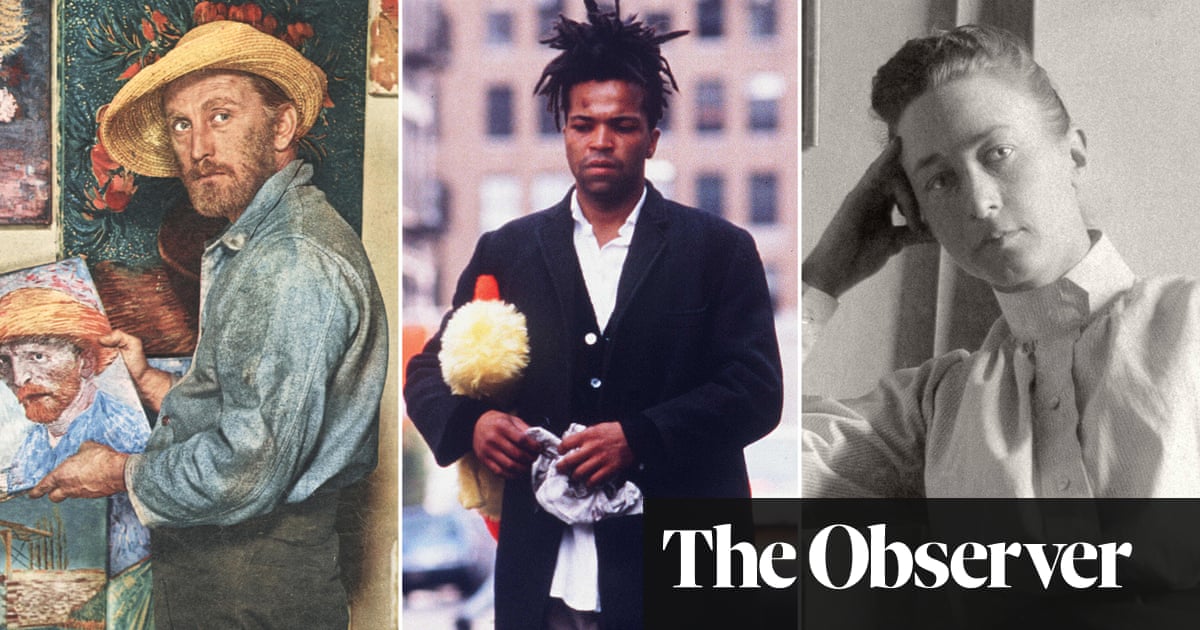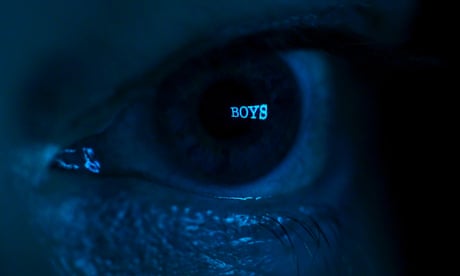Ambiguous Gestures
2004 - Installation (Installation)
Felix Gmelin
Ambiguous Gestures takes as its point of origin a film Gmelin discovered in his father’s archive. Filmed from a fixed point, it portrays his father in an intimate performance of body painting with a woman unknown to Felix Gmelin. The discovery of this footage was obviously disturbing. On the one hand there is an erotic encounter with someone who is not Gmelin’s mother; on the other hand the performance itself is strangely unerotic and unsensual. The performance clearly references the work of Klein and the Viennese actionists but has an Arcadian element divorced from the Viennese school. Two acts of painting take place; the mutual painting of bodies and the impression of those bodies on a series of canvases. Taking that as his own starting point, working from stills Felix Gmelin then painted his own paintings with the help also of an assistant, thus paralleling the process of his father. He wanted to focus on the painting aspect of the film rather than its erotic potential and draw a comparison between painting and film, further enhanced by the display of stills that forms part of the installation. The grisâtre quality of the paintings serves to highlight the intense colour of the film. By making what in some respects are conventional paintings from this most intimate of films, and painting found images, Gmelin neutralises its erotic charge, making the film ‘innocent, beautiful and affirmative’. While the film is ‘embarrassing in every possible sense’ to the artist, its conjunction with his paintings and the stills transforms it into another manifestation of a utopian project. Gmelin cleanses his father ‘s work literally and metaphorically, washing the film and creating paintings using rubber gloves and brushes.
With a degree in painting and inspired by so-called institutional criticism, Felix Gmelin is interested in the possibilities of painting as a form of resistance and its direct relation to a form of socio-political reality. He is frequently known to rework the experiences of his youth into his art. In a critical, yet personal investigation, he subtly unravels the complicated interweaving of self-development, socialization and emancipation with which he grew up in the late 1960s and 1970s. Gmelin’s first substantial work in which reproduction served as a productive impetus was Art Vandals (1996-1998), a series of 12 paintings and one object, modeled after examples of modern and contemporary artworks, all of which had been vandalized. His interest in degenerate art also falls within the interest of vandalism. The emptying of meaning is a consistent theme in his work, as a number of Gmelin’s paintings. Felix Gmelin was born in Heidelberg in 1962 and has lived in Stockholm, Sweden, since he was nine.
Colors:
Other related works, blended automatically
» see more

© » KADIST
Felix Gmelin
2006In Untitled (after Paul Schultze Nuremberg’s Kunst) (2006), from a larger series of diptychs, Gmelin addresses the notion of entartete kunst ( “Degenerate Art”) ...
Related works sharing similar palette
» see more

© » KADIST
Pratchaya Phinthong
2022Pratchaya Phinthong’s work has explored the mineral and karmic economies of Laos, a country that shares language, beliefs, and a long border with his own native region of Isaan (Northeast Thailand)...
Other works by: » Felix Gmelin
» see more

© » KADIST
Felix Gmelin
2006In Untitled (after Paul Schultze Nuremberg’s Kunst) (2006), from a larger series of diptychs, Gmelin addresses the notion of entartete kunst ( “Degenerate Art”) ...
Related artist(s) to: Felix Gmelin » Anri Sala, » Jason Rhoades, » Jens Haaning, » John Baldessari, » Joseph Beuys, » Maurizio Cattelan, » Nathalie Djurberg, » Richard Long, » Rirkrit Tiravanija, » Rivane Neuenschwander
» see more

© » KADIST
John Baldessari
1997In One Must , an image of a pair of scissors, accompanied by the words of work’s title, poses an ominous question about the relationship between the image and the text...

© » KADIST
Rivane Neuenschwander
2007Mapa-Mundi BR (postal) is a set of wooden shelves holding postcards that depict locations in Brazil named for foreign countries and cities...

© » KADIST
John Baldessari
1991The voids in Baldessari’s painted photographs are simultaneously positive and negative spaces, both additive and subtractive...
Related works found in the same semantic group
» see more

© » KADIST
Daria Martin
2004Soft Materials is a curious, touching but also disturbing sequence of confrontations between two people: a man and a woman, and machines...

© » ARTSJOURNAL
Streaming: the best films about artists | Movies | The Guardian Skip to main content Skip to navigation Skip to navigation From left: Kirk Douglas as Vincent van Gogh in Vincente Minnelli's ‘unabashedly gorgeous' Lust For Life (1956); ‘raw, restless' Jeffrey Wright in Julian Schnabel's Basquiat (1996); the Swedish artist and mystic Hilma af Klint in Halina Ryschka's documentary Beyond the Visible (2019)...






